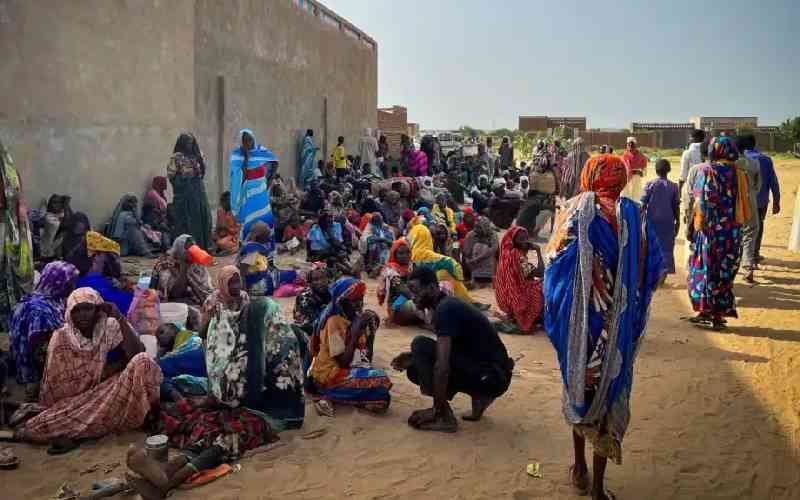Mass killings in Central Gezira in Sudan have made the UN take some immediate actions following disturbing reports of civilian massacres by the paramilitary Rapid Support Forces (RSF). The UN’s Resident and Humanitarian Coordinator in Sudan, Clementine Nkweta-Salami, voiced deep concern over “atrocious crimes” reported in central Gezira, a region where escalating violence has left entire communities devastated. At least 124 civilians are believed to have been killed in RSF-led attacks on villages within a single week, according to local activist groups, spurring the UN to take decisive measures to address the crisis.
UN’s Response to Atrocities in Gezira
The UN has been quick to respond to the mass killings in Central Gezira, recognizing the urgent need to protect vulnerable populations caught in the crossfire between the RSF and local militias. Nkweta-Salami condemned the violence, citing accounts of widespread killings, sexual violence, market and home lootings, and the torching of farms. Initial reports from the UN suggest that the attacks occurred between October 20 and October 25, resembling the scale of violence seen in Sudan’s Darfur region last year, where the RSF faced accusations of ethnic cleansing.
The situation in Central Gezira is particularly complex as it emerged as a new battleground following the defection of a prominent RSF commander, Abu Aqla Kayka, to the military. Kayka’s shift to the military side, taking a significant number of RSF forces with him, has intensified the conflict and put civilians at heightened risk. In retaliation, the RSF vowed to defend its territory and “deal decisively” with any armed groups, escalating an already perilous situation for the residents of Gezira.
Alarming Scale of Violence and Calls for International Support
Mass killings in Central Gezira in Sudan have made the UN take some immediate actions by increasing its diplomatic and humanitarian efforts. The Wad Madani Resistance Committee, a local group advocating for democratic governance and an end to the violence, reported “extensive massacres” across multiple villages. The Sudanese doctors’ union has also called for urgent UN intervention, describing the violence as “genocidal” and requesting the establishment of safe humanitarian corridors to access affected areas. With ongoing clashes, humanitarian organizations are struggling to provide aid, and emergency evacuations are reportedly “impossible” due to continued fighting and the military’s inability to protect civilians.
The UN’s heightened engagement comes after nearly 18 months of relentless conflict in Sudan, sparked by a power struggle between Gen Mohamed Hamdan Dagalo, head of the RSF, and Gen Abdel Fattah al-Burhan of the Sudanese Armed Forces (SAF). The two generals jointly seized power in a 2021 coup but later became embroiled in a fierce battle for control, fracturing the country and stalling its democratic transition. As violence spills into Gezira, UN officials fear the spread of atrocities on a scale not seen since the Darfur conflict.
International Pressure and Potential Humanitarian Aid
In light of the mass killings in Central Gezira, the UN has amplified its calls for a peaceful resolution to Sudan’s ongoing conflict. Recent efforts led by the United States and Saudi Arabia to mediate peace between Dagalo and al-Burhan have yet to yield concrete results. In response to the Gezira crisis, the UN is working with international partners to consider sanctions and aid distribution strategies that would help stabilize the region and protect civilians.
Nkweta-Salami’s statements signal that the mass killings in Central Gezira in Sudan have made the UN take some immediate actions by pushing for enhanced security measures. She has proposed emergency support for families displaced by the violence and pressed for independent investigations into the reported atrocities. Her emphasis on “atrocious crimes” calls attention to the dire need for international protection in Sudan, where civilians have been disproportionately affected by the power struggle.
Escalating Conflict and Challenges to Peace Efforts
The ongoing crisis in Sudan underscores the challenges facing peace and stability in the region. Sudan’s military has struggled to maintain control as the RSF consolidates power in contested territories. The situation has made Sudan one of the world’s most dangerous conflict zones, with more than 11 million people displaced and tens of thousands killed since April 2023. Local and international organizations are calling for stronger intervention from global powers to halt the spread of violence to other regions.
Observers say that the mass killings in Central Gezira in Sudan have made the UN take some immediate actions to curb the violence and prevent further destabilization. While the UN urges both the RSF and the Sudanese military to agree on safe corridors for humanitarian assistance, the likelihood of achieving these corridors remains uncertain. Civilians in Gezira and beyond continue to endure devastating effects from the fighting, as local resistance groups advocate for global attention and a more robust UN-led intervention.
Looking Forward: International Community’s Role
The mass killings in Central Gezira in Sudan have made the UN take some immediate actions, but the crisis also underscores the need for sustained global commitment to Sudan’s peace process. The UN’s initial response in providing humanitarian aid and condemning violence offers hope for immediate relief, yet the path to long-term stability remains complex. The international community, led by UN humanitarian efforts, is called upon to address not only the immediate safety of Gezira’s civilians but also to establish a lasting framework for peace in Sudan.
As Sudan’s leaders remain entrenched in conflict, the responsibility falls on international allies to support Sudan’s democratic aspirations and protect its people from further atrocities.
Stay connected to know more on arcnews.online for global news like Mass Killings In Central Gezira In Sudan Has Made UN Take Some Immediate Actions. For videos updates visit our YouTube. Do subscribe to Arcnews to get latest updates directly in your mail box.
Have A Great Day.


